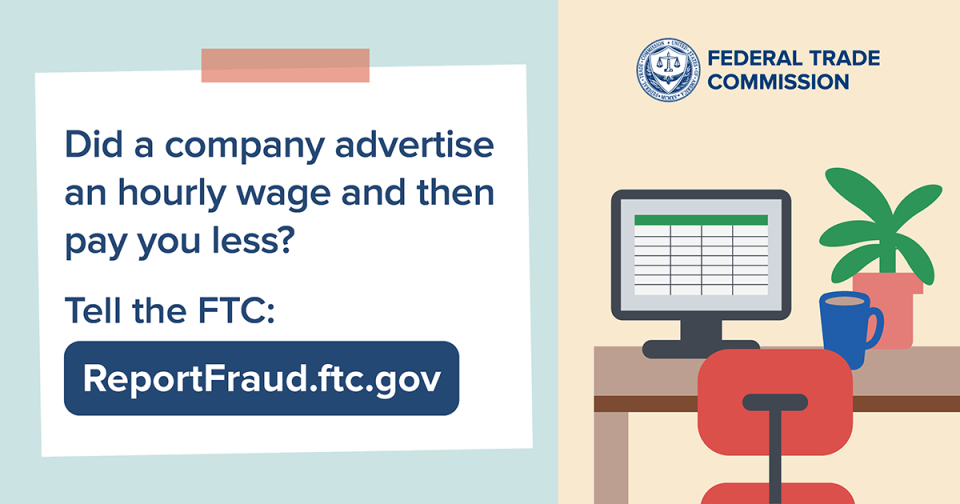When you’re looking for gig work, pay is likely a big — or the biggest — factor you think about. But what if a company promises you’ll make a certain amount, and then ends up paying you less?
The FTC says Arise Virtual Solutions advertises itself as a lucrative gig work opportunity where you can earn “up to $18 per hour” working customer service jobs for major companies. And testimonials on its website claim agents can support themselves and their families just on Arise income. But the FTC says the vast majority of people find it nearly impossible to earn the promised $18 an hour. In fact, less than 1% of agents have actually earned that amount in base pay (most have made around $12).
For Arise agents — who are overwhelmingly women, and majority Black or Latino — this means a lot of wasted time and money on things like mandatory equipment and training, and an income that turns out to be too low to live on.
Companies must tell the truth about how much you’ll make. Here are some things to do before you take on gig work or other kinds of work:
- Research the company. Search for the company name with words like “complaint,” “review,” or “scam” to see issues others might have had.
- Talk with current and past workers about their time at the company. Learn about their experiences, income, and any out-of-pocket expenses.
- Question promises of big money or profits. Gig work opportunities often have different pay structures than traditional jobs. Make sure you understand how you’ll be paid before investing time and money in an opportunity.
- Be skeptical about testimonials and reviews. Supposed “success stories” might be fake or misleading. Think: What do you know about the reviewers that makes them trustworthy?
If you think a company is making misleading claims about how much you’ll earn, report it to the FTC: ReportFraud.ftc.gov.


I have known people who have done work with Arise. It used to be called Willow incorporated back in the 1990,s. It does not pay as promised, from ladies I known to have had to give it up and return to the office environment.
It does target minority women mostly. Not sure if it's coincidence or,a marketing ploy that is more calculated and deliberate.
Veho is a driving gig that doesn't pay as promised. They put the routes out in the app and they always say they're going to take less time and then if you accept one they will add to it overnight but not add enough pay for the addition. If you need to drive over the time to complete they tell you to ask for an adjustment after you've completed additional time driving for free but they never really give it. Check the driver page on FB you'll hear the same story over and over.
I did gig work through the Hyre app for about a year and a half. Every job I did paid exactly as stated on the app. The only issue I had was that they did not post many jobs in my area. It's not worth driving 30+ minutes away for gig work unless it's for several hours. Most jobs they post are short and a few hours or less so I ended up quitting.
Definitely worked several projects with arise and been with them for 7 years until 2023! Never again. They have lied on invoices by underpayment several times! They have never paid the amount promise! Never got paid for training! Thank God I left sad it took longer then expected but was anticipating a higher paying gig from what was promised to only be at the bare minimum of that nasty $12 hr! Worst company to work woth!
Vector/Cutco used to advertise around our campus with lawn signs about how much they paid... and didn't quite lie, but definitely misrepresented "$18 an appointment" - but appointments ran 90 minutes AND you had to set/schedule your own sales appointments which was quite time consuming and typically consisted of cold-calling friends and acquaintances to try to sell them knives.